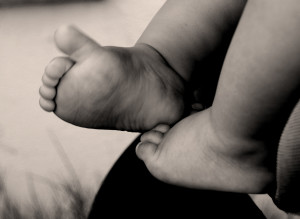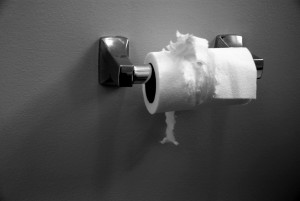How do you know when your toddler is ready to start toilet training?
Toilet training can be a tricky process and can be hard to tell when your child is ready. Generally most toddlers are ready for toilet training somewhere between two and three years of age. It does require a lot of patience as well as perseverance with both mum and child. Below are a few tips to help you make the whole process a little easier!

How will you know when your child is ready?
- he can sit or walk for short periods at a time
- nappies remain dry for a few hours
- shows interest in others using the toilet or starts using words associated with going to the toilet ‘wee wee’, ‘poo’, toilet’
- tells you or signs when she does a poo or wee in her nappy
- will not sit down if he has done a wee or poo as he may be uncomfortable
How do you want your child to be trained?
Potty:
It’s mobile and it’s familiar, and some children find it less daunting than a toilet. You can carry it with you in the car on long journeys, or around the home in the early days of training. There are also cute/fun potties with a flush function which can be exciting for kids.
Toilet:
You will need a step for your child to stand on. You’ll also need a smaller seat that fits securely inside the existing toilet seat (you can buy step and seat in one removable toilet seats), because some children get uneasy about falling in. Some children tend to prefer the toilet as they are going to the toilet ’just like Mummy’.
There are some good children’s DVDs to watch to help children begin to learn about going to the toilet (Elmo’s Potty Time).
A few helpful steps for toilet training
- Allow your child to watch others who are using the toilet, and talk about what they’re doing.
- You might like to print out some toilet training pictures and stick it on your child’s room wall.
- If your child has been doing a poo at a particular time of the day, take note of this and encourage him to sit on the potty during that time.
- Teach your child some simple words associated with going to the toilet such as ‘wee’, ‘poo’ or ‘finished’
- If your child refuses to remove his nappy initially, you could try leaving the nappy on but still getting your child to sit on the potty or toilet (this seemed to work with my son and eventually he learned to go without the nappy!)
The day you begin…
- choose a day when you will not be leaving the house (if possible).
- wear loose comfortable clothes which is easy to remove.
- remove nappies from your child.
- take your child to the toilet frequently (every 40 mins and every 10-15 mins if they have just had a drink). Encourage them to sit on the toilet and do a wee. If they don’t, just offer praise for good trying. It is important that your remain positive with your child throughout.
- give your child lots of fibre to eat and water to drink so he doesn’t become constipated
Accidents are very normal
There will be lots of accidents along the way; the important thing is to reassure your child that they are doing a great job trying. It is a tricky concept for them to grasp so when they are successful there should be a lot of praise and encouragement.
To help avoid accidents:
- take your child frequently to the toilet (or ask if they have to go)
- take your child to the toilet before an outing
- remind him to use the potty or toilet during their play
- If you have begun toilet training at night, encourage your child to do a big wee just before bed. Avoid giving them water close to bedtime.
Using training pants:
You may also choose to use training pants for your child, training pants (a little like a nappy but feels more like underwear) can be worn during toilet training. Although they are not very absorbant, they are great for holding in accidents (wee or poo).
Wet nights
Many children will still have accidents at night for quite a while, even if they are toilet trained during the day. Assure your child that you will help him in the middle of the night if he wakes up needing to use the potty.
Things to remember
It may take you a matter of days or sometimes months to toilet train as all children respond differently. The thing to remember is that eventually they will all succeed!
Try to avoid forcing your child to go to the toilet or get angry if he doesn’t cooperate or seem interested. Just keep persisting and offer a lot of positive praise for their efforts.
Do you have any other helpful tips or suggestions on how you toilet trained your child? Please share them with us in the comment section below!
Originally posted 2013-11-17 10:44:07.

